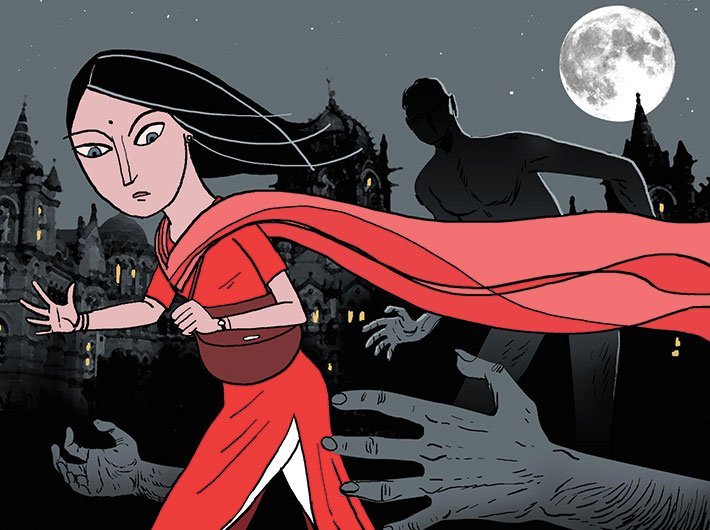On April 18, 1917, in a rare deposition before the Motihari court after he was arraigned on the charges of defying the government’s order, Mahatma Gandhi said, “I have disregarded the order served upon me, not for want of respect for lawful authority, but in obedience of the higher law – the voice of conscience.” With this formulation, Gandhi began his new journey in India which was always guided by “the voice of conscience”.
But before moving to Motihari and Champaran (which formed part of Tirthut division of Bihar) for his first Satyagraha campaign after returning to India, Gandhi was received at Muzaffarpur station by Acharya JB Kriplani who was teaching at the Langat Singh College, now known simply as LS College. The tell-tale signs of Gandhi’s stay in Muzaffarpur are still visible in the college as some places are marked as legacy of the Mahatma.
The entire Tirhut division, of which Muzaffarpur used to be the headquarters, played a critical role in the shaping of Gandhi’s persona. Take for instance yet another evocative description from him about poor peasants of the region: “It should be remembered that no one knew me in Champaran. The peasants were all ignorant. The world outside Champaran was not known to them. And yet they received me as though we had been age-long friends. It is not exaggeration, but the literal truth, today in this meeting with the peasants I was face to face with God, Ahimsa and Truth.” In essence, Gandhi found his political and spiritual bearing in this region for his onward political and spiritual journey.
Nothing could be as cruel an irony as remembering the Mahatma at a time when the context of Muzaffarpur is maligned beyond imagination. This came close on the heels of celebrations that marked the centenary of Gandhi’s Champaran Andolan. It would not be wrong to say that Muzaffarpur is a microcosm of India today and Brajesh Thakur, who ran a girls-shelter house there and stands accused of raping them, is a symbol of morbid depravity that afflicts the country’s social and political life.
Muzaffarpur is a small yet very old city that is conjoined to a place called Vaishali which has a pride of place in Indian history for running the ancient republic. Its civilisational linkages are quite at odds with its modern evolution which is marked by intense criminality, corruption and extreme perversity. Brajesh Thakur who ran newspapers and many NGOs in the name of the shelter house for girls thrived in this degenerative socio-political milieu. It is next to impossible that people were not aware of his conduct. But, then, many of them might have seen his perversity and criminality as his strength.
And in the given political milieu in the Tirhut region, Thakur is not an exception as he has many examples like Anand Mohan Singh, Rama Singh to emulate. In fact, those with criminal background only find more respectability than a professional and seasoned politician. This is perfectly exemplified by the fact that Brajesh Thakur had been seen in the company of all chief ministers of recent times, including Nitish Kumar. He was regarded too close to Lalu Prasad Yadav. And in one instance, he lost the assembly seat by a narrow margin when he contested from Anand Mohan Singh’s party.
The fact that he was a newspaper publisher entitled him to be a member of the state accreditation committee that is tasked with discriminative powers to grant or not grant state recognition to journalists. It is also unbelievable that none of the journalists were aware of Thakur’s true character. In fact, not only politicians but also media, bureaucracy, NGOs and society as a whole were quite indulgent towards a charlatan who camouflaged his criminality with ease and passed it off as social work. People preferred to be deceived by Thakur than be guided by “the voice of conscience”.
Chief minister Nitish Kumar who professes to be guided by Gandhism in his politics is absolutely right when he expressed his “shock and shame” at the happenings in Muzaffarpur. But “shock and shame” appear to be quite inadequate in responding to the enormity of what has happened in Muzaffapur. It requires a genuine soul-searching and introspection by leaders like Nitish Kumar as well as the bureaucracy, media, civil society and the judiciary if they are still “mindful and in obedience of higher law – the voice of conscience”, as the Father of the Nation had discovered in his struggle in neighbouring Champaran.
Perhaps, the least they could do is arrest the movement towards the precipice to which Muzaffarpur is constantly pushed as it has travelled from Mahatma Gandhi to a dreaded gangster like Munna Shukla.
[This comment has appeared on FirstPost.com]

